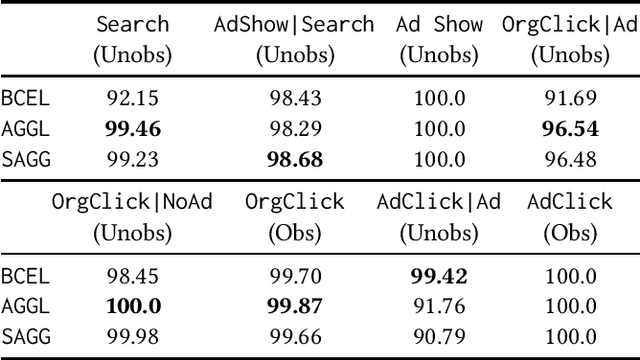Split: Inferring Unobserved Event Probabilities for Disentangling Brand-Customer Interactions
Paper and Code
Dec 08, 2020



Often, data contains only composite events composed of multiple events, some observed and some unobserved. For example, search ad click is observed by a brand, whereas which customers were shown a search ad - an actionable variable - is often not observed. In such cases, inference is not possible on unobserved event. This occurs when a marketing action is taken over earned and paid digital channels. Similar setting arises in numerous datasets where multiple actors interact. One approach is to use the composite event as a proxy for the unobserved event of interest. However, this leads to invalid inference. This paper takes a direct approach whereby an event of interest is identified based on information on the composite event and aggregate data on composite events (e.g. total number of search ads shown). This work contributes to the literature by proving identification of the unobserved events' probabilities up to a scalar factor under mild condition. We propose an approach to identify the scalar factor by using aggregate data that is usually available from earned and paid channels. The factor is identified by adding a loss term to the usual cross-entropy loss. We validate the approach on three synthetic datasets. In addition, the approach is validated on a real marketing problem where some observed events are hidden from the algorithm for validation. The proposed modification to the cross-entropy loss function improves the average performance by 46%.
 Add to Chrome
Add to Chrome Add to Firefox
Add to Firefox Add to Edge
Add to Edge